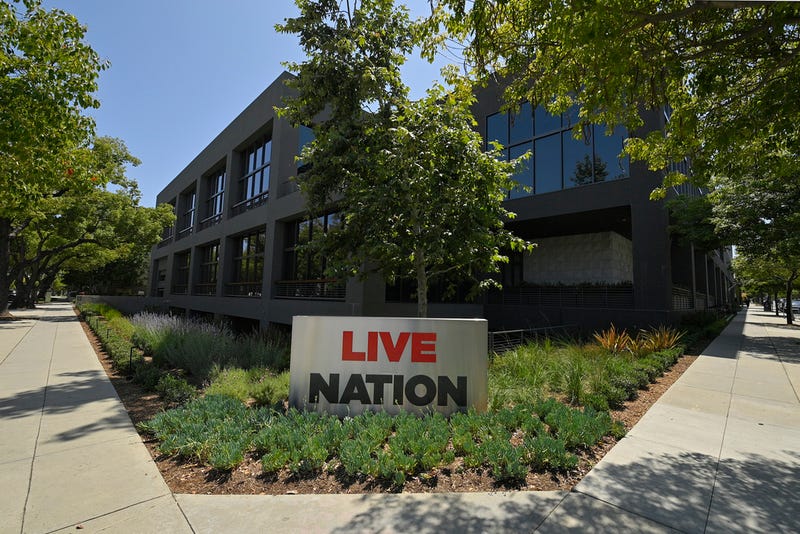
PHILADELPHIA (KYW Newsradio) — The U.S. Justice Department and 30 state and district attorneys general, led by Pennsylvania Attorney General Michelle Henry, filed a lawsuit Thursday against Live Nation Entertainment, Inc. and its subsidiary, Ticketmaster, LLC asking a court to break up an alleged illegal monopoly on the live entertainment industry.
Filed in federal court in Manhattan, the sweeping antitrust lawsuit seeks to dismantle the system they say is squeezing out smaller promoters, hurting performers and drowning ticket buyers in fees. The companies have a long history of clashes with major artists, including Taylor Swift and Bruce Springsteen, and their fans.
The ticket seller sparked outrage in November 2022 when its site crashed during a presale event for a Swift's Eras stadium tour.
The lawsuit asks the court to order Live Nation and Ticketmaster to separate. The lawsuit also wants financial compensation awarded to customers who paid more than they should have and an end to the ticketing service giant’s “anticompetitive services.”
In a statement, Henry said, in part, “Live Nation and Ticketmaster have long had a chokehold on much of the live entertainment industry,” adding “Pennsylvanians deserve to have fair and competitive choices when it comes to tickets to live entertainment.”
One of the suit’s claims is that music fans are harmed by Live Nation’s conduct, including high fees, lack of transparency, fewer consumer choices and stifled innovation.
Another allegation is that Live Nation has maintained its anti-competitive monopoly by locking up venues through restrictive long-term, exclusive agreements and by threatening that venues will lose access to Live Nation-controlled tours and artists if they sign with a rival ticketing company.
Live Nation, which has for years denied that it is violating antitrust laws, said the lawsuit “won’t solve the issues fans care about relating to ticket prices, service fees and access to in-demand shows.”
“The allegations are baseless. Live Nation and Ticketmaster do not wield monopoly power,” the companies said in a statement.
“Calling Ticketmaster a monopoly may be a PR win for the DOJ in the short term, but it will lose in court because it ignores the basic economics of live entertainment.”
The companies claim that most service fees go to venues and that outside competition has ”steadily eroded" Ticketmaster's market share.
Michael Carrier, a professor at Rutgers Law School who specializes in antitrust litigation, said the Justice Department has a strong case. He expects Live Nation to “try to cast blame elsewhere,” such as arguing that prices are set by artists or venues, but he said those explanations are weak.
“The DOJ showed how Live Nation really has its tentacles in each element of the supply chain, which means that it has a lot more control than it is letting on,” he said. “And, in terms of justifications, there is really very little that (Live Nation) can offer in terms of how they’re helping the consumer.”
Carrier said a breakup between Live Nation and Ticketmaster, combined with other remedies such as preventing some exclusive deals that shackle competition, could potentially help fans see lower ticket prices, give artists more agency in choosing venues and boost smaller promoters' success in the long run.
